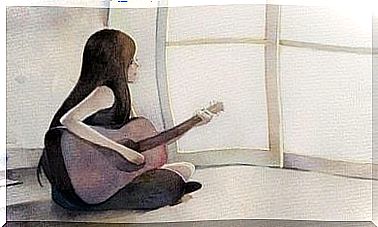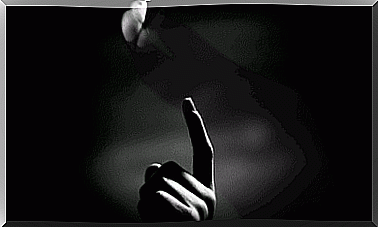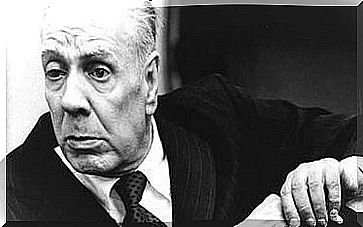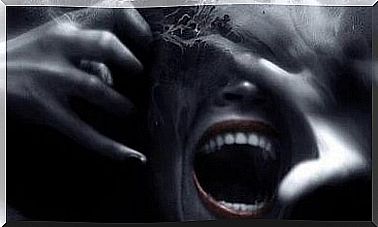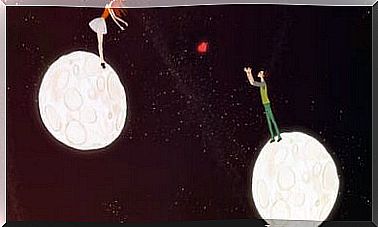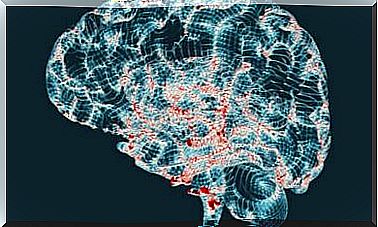Do You Know The Difference Between Stress And Anxiety?

While stress and anxiety are conditions that are very similar, they also have their differences. People often use the terms as synonyms, but they are not the same thing. Knowing how to identify one or the other is not a simple theoretical exercise. It is practical experience that helps us to define more precisely the intensity or severity of these conditions.
In addition to the difficulty of defining the differences between the two, there are many types of stress and anxiety. Sometimes we classify them according to the intensity of the symptoms. For example, psychologists talk about chronic stress or general anxiety. Other times we classify them based on the source or cause. Examples include stress in the workplace or separation anxiety.
Yet all kinds of stress share some common elements, and the same goes for all kinds of anxiety. For clarification, let’s look at some of the key differences between anxiety and stress.
Stress and anxiety have different causes
In the case of stress, the cause is easy to determine. Stress occurs when a person does not have (or thinks he has) the resources to deal with a problem. The same thing happens when a task or an activity needs to be performed.

Fear, on the other hand, has a more vague origin. Often you cannot identify the relevant threat or danger. In many cases, there is not even an objective reason for one’s unrest. Despite the lack of a specific cause, he or she still experiences anxiety. On the other hand, fear is very sensitive to conditioning and anticipation. It can be the result of stress or pressure.
The predominant emotions
Another element that distinguishes stress and anxiety is the predominant emotions or feelings. Stress gives rise to anxiety. We can define it as a mix of nervousness and frustration. It can also include irritability and sometimes sadness.
The prevailing emotions or prevailing feelings associated with fear are, of course, fearful feelings. They are feelings of impending danger that tend to grow. We describe it as an invasive emotion that spreads and persists. It causes a lot of damage to one’s mood and state of mind. Fear leads to bewilderment, and even mental blocks and paralysis in severe cases.
Factors that play a role
In general, stress is the result of external factors. Anxiety, on the other hand, is caused by internal factors. They are not always easy to distinguish. What makes the difference in any case is the presence or absence of an outside stimulus.
Specific incidents or situations lead to stress. It can happen at work, when performing a difficult task, due to moving from a specific place, or other reasons. On the other hand, fear is often caused by the individual himself. He creates and feeds catastrophic thoughts and distressing feelings. It doesn’t matter what’s really going on around him.
Time perception
Stress is too much of the present, while anxiety is too much of the future. To someone who is stressed, the present moment seems infinite. He doesn’t believe he can get out of the current situation. He feels trapped and sees no way to change what worries him. It’s as if he’s been sentenced to eternal suffering from the effects of whatever caused the stress.

In anxiety, the person is afraid of what might happen, but it hasn’t happened yet. Or maybe something has happened, but he can’t help it. So often he doesn’t even know what that ‘something’ is. He just anticipates every disastrous and negative thing that could happen. The person cannot objectively assess his current situation. He lives according to the terrible that is on the horizon or has already happened. He is obsessed with possible consequences without being able to influence them.
The disappearance of symptoms
If someone always feels stressed before a dentist appointment, their discomfort will disappear once the appointment is over. This is a distinguishing feature of stress – it disappears once the stimulus is gone or the conflict is resolved.
Fear tends to perpetuate itself. Using the example from earlier, if a person is afraid of the dentist, the fear will not go away after the visit. He could imagine losing all his teeth. Another fearful thought is that he is experiencing a symptom of a much worse problem that has only just begun. Anxiety feeds on a negative and overactive imagination.

If you are able to recognize the similarities and differences between stress and anxiety, you can better identify what is bothering you. We recommend that you seek help with prolonged stress. Prolonged stress means you are unable to resolve a conflict that you are suffering from. We also recommend that you consult an expert if you think you have problems with anxiety, that vague fear that has no end or beginning.
